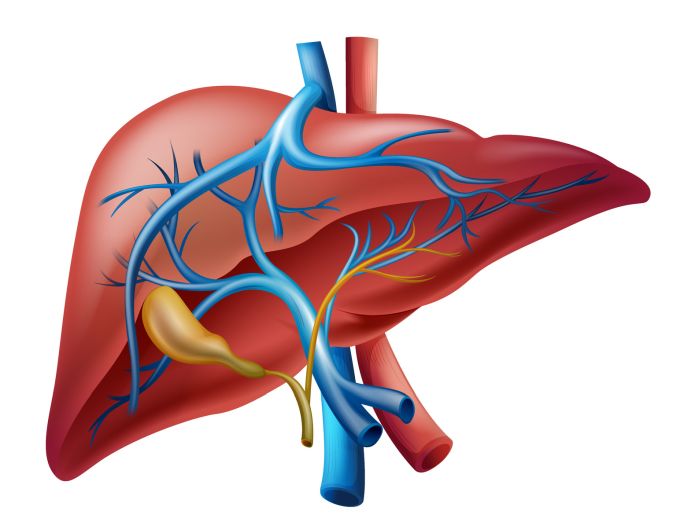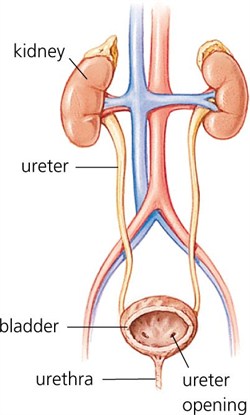Why we need the liver and kidneys
The liver and kidneys help detoxify the body and filter and purify the blood. They also maintain the chemical balance in the blood necessary for each cell's metabolic reactions to take place.
The Liver
The liver is situated in the upper right part of the abdomen, next to the stomach. It is solid yet spongy, holding a large volume of blood. It is the body's chemical 'factory', carrying out a huge number of complex tasks. The end products of everything we eat and drink are carried to the liver, providing raw materials which are recombined for the manufacture of many new substances. Potential toxins, such as alcohol, prescription medicines and illegal drugs, are broken down by enzymes into less harmful compounds before being sent to the kidneys for excretion. Excess protein, whether from our diet or worn out body cells, is converted into urea and again sent to the kidneys. The liver makes and stores certain vitamins and minerals. It also produces clotting factors, for blood coagulation, and antibodies to help protect against disease.
As a result of so much activity, the liver gives off a great deal of heat, which warms the blood, helping to maintain an even body temperature. Because of its role in detoxification, the liver can become damaged by the substances it is trying to render safe.

One of the more common causes of liver damage is chronic alcoholism which kills liver cells and can make the whole organ cirrhotic and unable to function. Hepatitis is an inflammation of the liver. A side effect of this is jaundice, when the greeny-yellow digestive juice - bile - produced by the liver spills into the blood, giving a yellow tinge to the skin and eyes.
The Kidneys
The kidneys are the main organs of the urinary system and are located at the very back of the abdomen, either side of the spine at waist level. Each kidney would fit roughly into the palm of your hand, and yet they contain over a million tiny filtering units called nephrons. A blood capillary links with each of these structures, and the watery part of the blood, with most of its soluble contents, enters the nephrons.
Wastes and unwanted substances stay in the kidneys, excreted as urine, while most of the water and useful chemicals are reabsorbed. The urine travels down from each kidney to the bladder along two narrow tubes called the ureters, and is excreted through the urethra.

The kidneys and bladder may become infected by bacteria. Bladder infection - a type of cystitis - is uncomfortable but not dangerous. However, the infection can travel up to the kidneys where it may lead to more serious disease. Kidney stones are formed from many substances, including minerals, such as calcium. These can block the kidneys or the ureters, causing acute pain. The backflow of using caused by blockage of the ureters can also damage the kidneys.
Stress and the Liver and Kidneys
The liver is involved in the chemical breakdown of hormones and other body chemicals, making them safe before returning them to the bloodstream where they are filtered out by the kidneys. When a person is under short-term stress, higher levels of adrenaline and noradrenaline are produced by the adrenal glands. These hormones cause the liver to increase its level of chemical reactions, triggering the necessary changes in blood sugar and fat levels for survival in an emergency.
If stress continues over a long period, yet more hormone and chemical changes take place. The liver is then responsible for 'mopping up' these chemicals to return the body to normal at the end of the stressful situation. Inevitably, long-term stress puts the liver under strain and can result in nausea, headaches and a feeling of being 'liverish'. Additionally, misuse of alcohol, medications and drugs, in an attempt to deal with stress, will put the liver under even greater pressure.
The kidneys are less directly affected by stress, but if the liver is under pressure and producing more breakdown products, the kidneys have to work harder to filter them from the blood. Stressful lifestyle changes can cause us to drink less water, and this is unhelpful for the kidneys as it results in more concentrated urine and general dehydration of the body tissues.